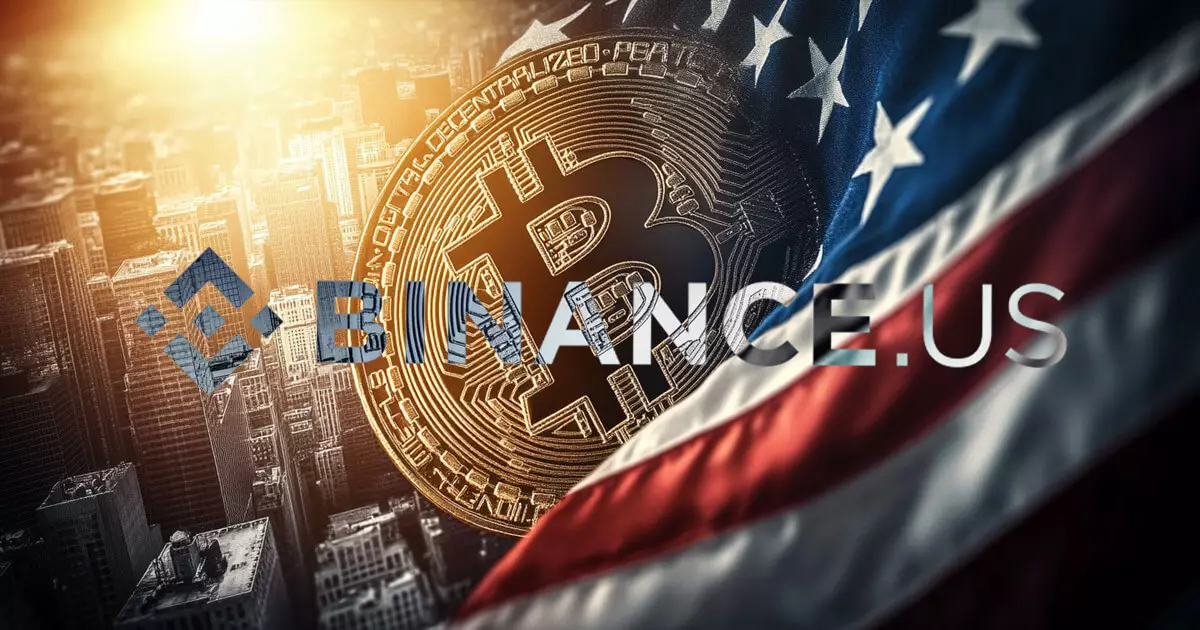In a striking denial, Changpeng Zhao, the former CEO of Binance, has publicly rejected a report by the Wall Street Journal (WSJ) suggesting he is negotiating an investment deal with Donald Trump’s family involving Binance.US. Zhao vehemently refuted these claims on social media, portraying the article less as a journalistic endeavor and more as a diabolical attempt to undermine both his character and the crypto industry at large. His response elucidates not just his alleged innocence but also hints at a deeper narrative regarding the still-prevalent animosity towards cryptocurrencies in traditional economic circles, particularly in the United States.
If we delve further into Zhao’s assertions, it becomes evident that this isn’t merely a case of a businessman defending his name; it’s a manifestation of the pervasive skepticism faced by the cryptocurrency domain. Zhao implies that this hostility is fueled by remnants of a “war on crypto” initiated during the previous administration. This context raises questions about the broader implications of media portrayal and political posturing in shaping public perception of innovative financial technologies.
Political Underpinnings of Financial Coverage
The intertwining of media, politics, and finance has always existed, yet the contemporary scenario reveals an alarming trend: major publications like WSJ publishing potentially damaging narratives without substantiating evidence. Zhao’s insinuation that the WSJ engaged in a politically motivated smear campaign against both Trump and the crypto sector bears significant weight. The premise of financial journalism was once rooted in presenting facts but has now morphed into a battleground for ideological wars, particularly regarding rapidly evolving industries such as cryptocurrencies.
Moreover, Zhao’s assertion that the article reflects leftover sentiments from previous administrations resonates profoundly with the increasingly polarized landscape of U.S. politics. As cryptocurrencies challenge the status quo of financial systems, discussions that previously would have garnered engagement now find themselves shrouded in enmity. It’s this environment that prompts conspiracy theories about motives and intentions, igniting friction between traditional financial institutions and a rapidly advancing digital era.
The Fallout of Zhao’s Legal Challenges
Compounding this drama is Zhao’s past legal issues, including a guilty plea to federal violations in late 2023, which earned him a staggering $4.3 billion settlement and a four-month prison term. These elements lend an air of vulnerability to Zhao’s current position. The reported conversations about a potential presidential pardon, although not substantiated by Zhao’s testimony, hint at an unspoken strategy—could a pardon assist in clearing Binance’s legal hurdles?
This question alone underscores the multi-layered complexities entangled in the Binance narrative. If legitimate discussions were indeed occurring regarding financial backing from the Trump family, one could argue that this partnership might serve as a gateway for Binance to regain stability and project growth amidst turbulent waters. However, the mere suggestion of such dialogues invokes intense scrutiny, laying bare the skepticism that surrounds figures like Zhao, who, despite their innovative contributions, find themselves under relentless examination.
Ongoing Criticism of Established Media
Zhao has made it abundantly clear that he holds little regard for the credibility of traditional journalistic institutions, particularly the WSJ, which he has accused of peddling “FUD”—fear, uncertainty, and doubt—against Binance and him personally. This raises intriguing questions about the media’s role in shaping public discourse and investor sentiment around cryptocurrencies. Unlike conventional assets, where positive or negative media coverage can yield immediate financial repercussions, the competitive, decentralized nature of cryptocurrencies often renders such attacks both ineffective and counterproductive.
Zhao’s dismissal of the WSJ’s motives also illuminates a larger trend: the mistrust many in the crypto community have towards legacy media outlets. As they continue to disseminate what is perceived as sensationalist content, they fuel the narrative that cryptocurrencies are a threat rather than an opportunity. This adversarial relationship can lead to radicalization among crypto advocates, who view themselves not merely as entrepreneurs but as visionaries under siege from an outdated financial paradigm.
Confronting the Stubborn Media Narrative
It’s apparent that Zhao’s vehement rebuttal is indicative of a broader struggle against established narratives that plague the cryptocurrency landscape. As the industry continues to navigate complex legal and regulatory frameworks, these narratives cannot go unchallenged. His suggestion that anti-crypto sentiments are still influencing media coverage opens the floor to renewed discussions about how narratives are crafted in journalism.
By openly combating such portrayals, Zhao positions himself and Binance as defenders not only of their interests but also of the crypto industry’s integrity. In doing so, he implants a critical question in the minds of the public: How much of what we read is steered by underlying agendas rooted in fear, preservation of power, or political repositioning? The answers to these questions are essential for the evolution of finance in an era compellingly on the brink of disruption.















